Emerald ash borers, bagworms, and Japanese beetles are significant pests in Iowa. Emerald ash borers target ash trees, disrupting nutrient flow and causing canopy dieback, often indicated by thinning leaves and increased woodpecker activity as they feed on the larvae beneath the bark. Bagworms primarily infest evergreens, such as arborvitae and junipers, creating protective bags and causing severe needle loss and foliage skeletonization. Japanese beetles, with striking metallic colors, damage plants both above and below ground. Adults feed on foliage, creating skeletonized patterns, while grubs harm lawns by severing the roots. Early detection and intervention are crucial to managing these destructive pests effectively.
Emerald Ash Borers Target Ash Trees & Cause Canopy Dieback
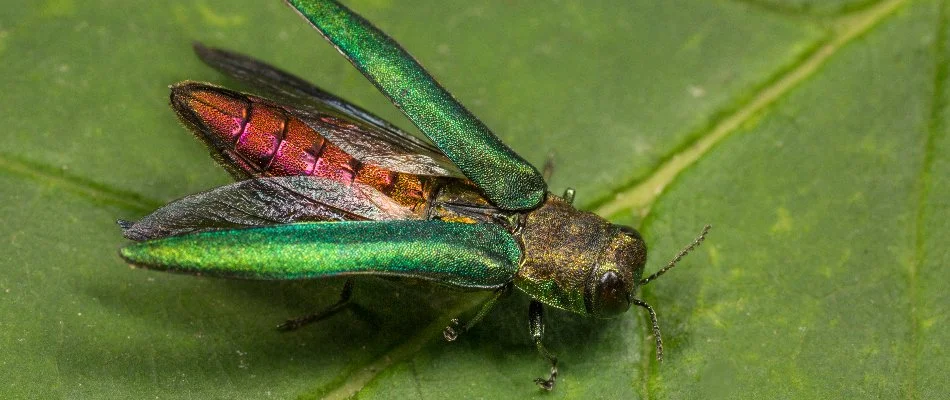
The emerald ash borer is perhaps one of the most notorious pests affecting ash trees in Iowa. Adult emerald ash borers are striking in appearance, measuring about half an inch long with metallic green wings that cover a bright red abdomen. Despite their alluring appearance, the larvae are the true culprits. They are creamy white, flat, and serpentine, equipped for burrowing.
The life cycle of the emerald ash borer spans one to two years. In spring, adults emerge from ash trees, leaving D-shaped exit holes, to mate and lay eggs. Upon hatching, larvae tunnel into the tree, feeding on the inner bark and disrupting the tree’s ability to transport nutrients and water. This feeding creates winding galleries beneath the bark, eventually girdling branches and entire trees.
Infested trees often exhibit canopy dieback, thinning leaves, and increased woodpecker activity as these birds seek out larvae. Eventually, the tree succumbs if not treated. Early signs of infestation include yellowing leaves and premature leaf drop, serving as a critical warning to initiate control measures, such as systemic insecticides or biological controls.
Bagworms skeletonize leaves and cause needle loss in evergreens.
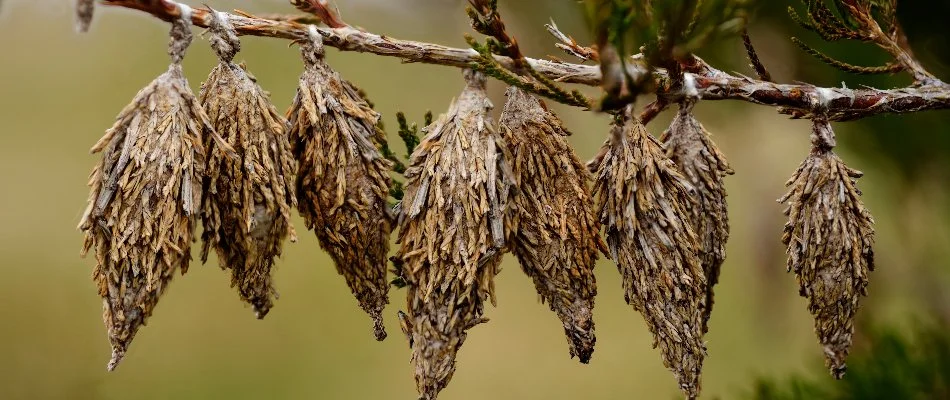
Bagworms primarily target evergreens in Iowa, like arborvitae and junipers, but can infest deciduous trees as well. These plant pests are most easily recognized by the distinctive protective cases, or "bags," they create. These bags, constructed from silk and plant material, house and safeguard them through various life stages. Emerging from overwintering bags in late spring, larvae disperse and begin feeding on foliage. The caterpillars leave a wake of destruction, skeletonizing leaves.
The impact of bagworms is significant, especially on evergreens, where defoliation can be fatal. Infestations appear as extensive needle loss, with plants looking like they are draped in brown, dried foliage. Early detection includes noticing small, cone-like bags hanging from branches.
Japanese Beetles Cause Damage As Adults & Grubs
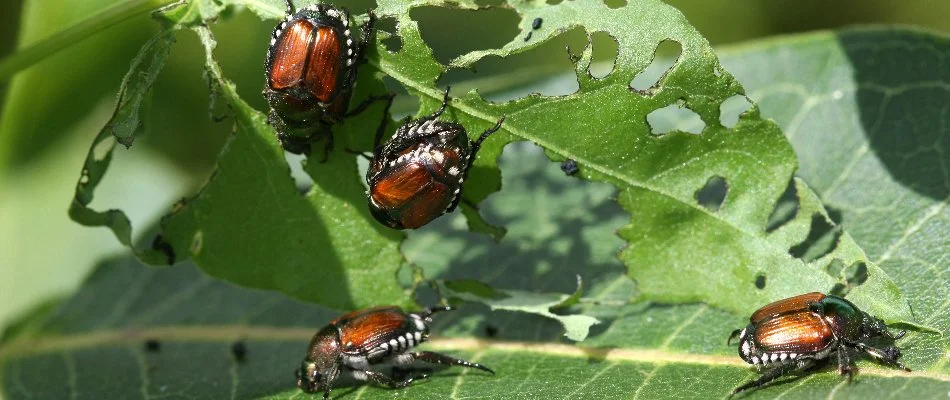
With their metallic green and copper-colored bodies, Japanese beetles are hard to miss. They are highly mobile, feeding on over 300 plant species, including shrubs, ornamentals, and trees. Japanese beetles have a one-year life cycle. Adults surface in early summer, voraciously consuming foliage and flowers. The insects mate, and females lay eggs in the soil. These eggs develop into grubs, which feed on the root of grass during late summer, going dormant over winter and resuming activity as temperatures rise.
The damage caused by Japanese beetles is twofold. Above ground, adults feast on leaves, creating skeletal patterns of remaining veins. Below ground, grubs threaten lawn health, causing browning and loose turf as they sever roots. Early signs of adult feeding are skeletonized leaves and clusters of beetles congregating on plants.
Call us today to schedule our tree and shrub insect control services!
With the severe damage caused by these common insects to trees and shrubs, it's essential to take measures to protect your plants. At A+ Lawn & Landscape, we offer emerald ash borer control, bagworm treatment, and Japanese beetle control services to keep your trees and shrubs protected from the damage they can cause! These services provide targeted solutions against each pest.
We offer these services to homeowners and business owners, as well as HOAs, in Des Moines, West Des Moines, Ankeny, and other nearby areas in Iowa. Give us a call at (515) 289-2020 to schedule these tree and shrub insect control services!

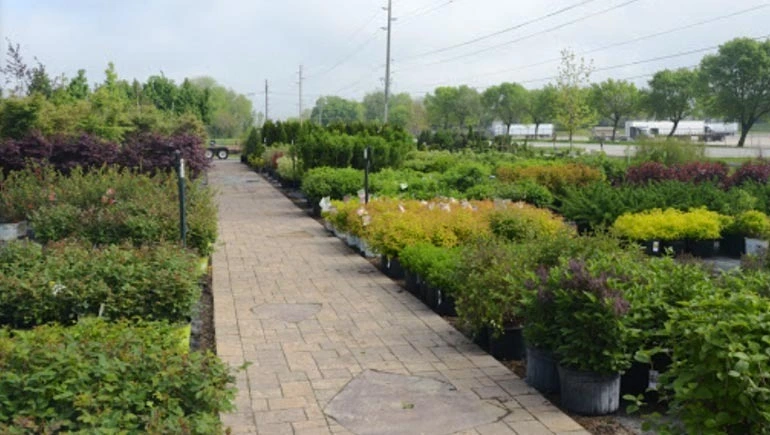
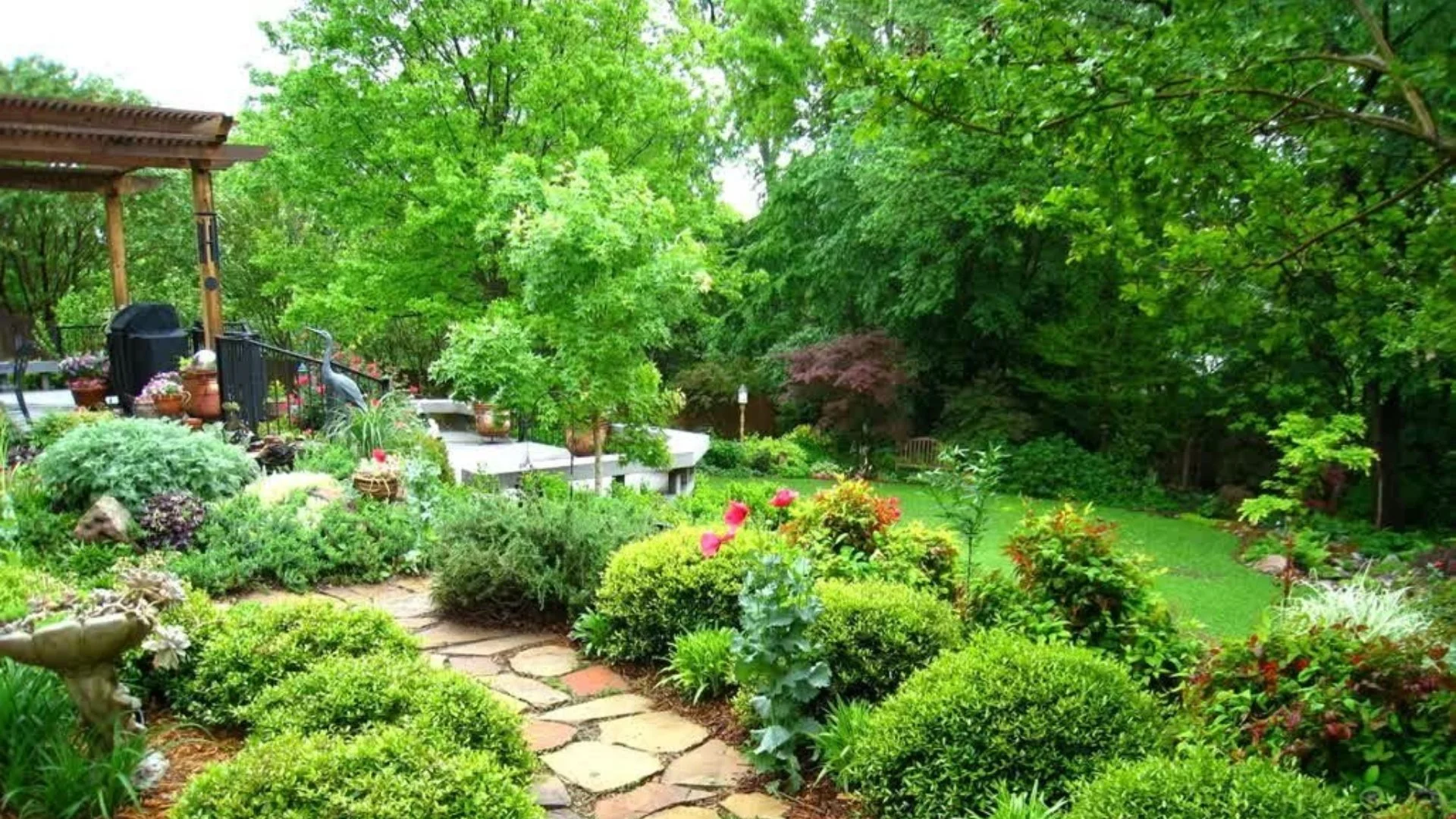


Comments (0)
Thanks for your comment!
Thanks for your feedback! Your comments have been successfully submitted! Please note, all comments require admin approval prior to display.
Error submitting comment!
There is a problem with your comment, please see below and try again.